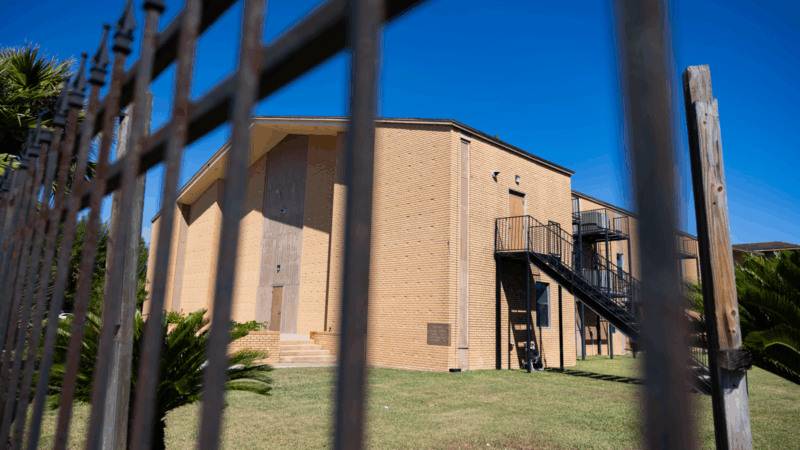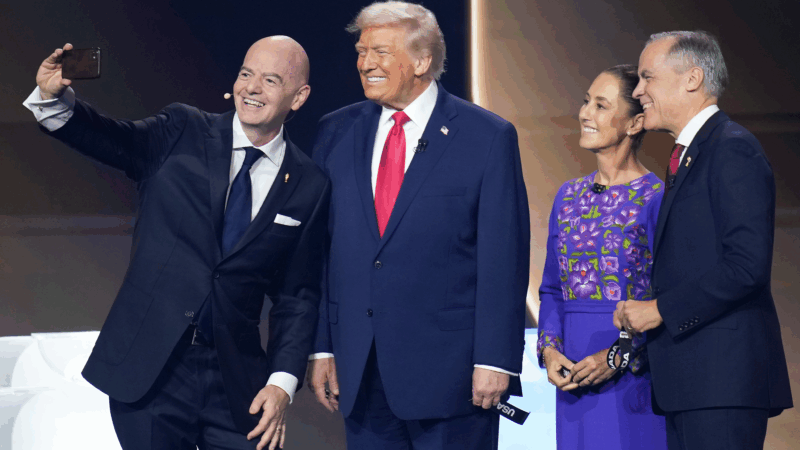U.S. and China begin talks amid tensions over Trump’s tariff war
GENEVA — Officials from the United States and China began trade-related talks here Saturday, marking the first face-to-face conversations since President Trump placed new tariffs of 145% on Chinese goods.
The meetings in a Swiss city known for its discretion and conflict resolution represent the first potential efforts to end a trade war that has frazzled financial markets in recent weeks, and caused billions of dollars’ worth of import disruption across both the United States and China.
The U.S. delegation is being led by Treasury Secretary Scott Bessent, alongside Trade Representative Jamieson Greer, and the only participant the Chinese have confirmed is the country’s vice premier for economic affairs, He Lifeng.
The talks are being held at a grand hilltop villa with sweeping views of Lake Geneva used by Switzerland’s ambassador to the United Nations. Neither side has issued public statements since the talks began early Saturday.
Just days before these discussions of seismic economic significance, the United Kingdom became the first country to strike its own limited trade deal with the Trump administration — albeit one that left tariffs of 10% still in place on most British exports.
But for Bessent, China has been the “missing piece,” as he explained in a recent interview on Fox News — one of the only countries that until now has refused to enter discussions on trade.
Bessent said he was originally only visiting Geneva to edge closer to a separate, updated trading arrangement with Swiss authorities. They told reporters in a news conference Friday that they hoped their own agreement with Washington could be struck within a few weeks.
In the meantime, Swiss President Karin Keller-Sutter said, her country was happy to help facilitate dialogue between the two global economic superpowers, at a moment when the anticipated impacts of tariffs have weighed heavily on stock prices and economic forecasts alike.
“Now the chance has been taken by China and the U.S.,” Keller-Sutter told NPR. “We really hope that this platform we can offer will also lead to a result, because it would be in the interest of, I would say, the world economy and world commerce.”
When he arrived in Geneva on Friday, Bessent had met with senior Swiss officials including Keller-Sutter. She told him she hoped the Holy Spirit that had visited Rome this past week — during the election of a new pope — might travel up to Geneva this weekend too, to help nudge things along.
But a swift resolution seems unlikely, and this initial set of conversations could merely herald the start of a months-long marathon of negotiations, says Dmitry Grozoubinski, a former diplomat and trade negotiator for Australia.
“The two delegations will be feeling one another out — neither side particularly benefits from this current iteration of the trade war continuing,” said Grozoubinski, now the executive director of the Geneva Trade Platform think tank.
“This is going to be the first steps in a dance where they try to feel out: ‘OK, what would a win for you look like, and is that a price we’re willing to pay,’ while trying to communicate the same thing in the other direction,” he said.
Voting nears to a close in Texas primary that may be crucial to control of the Senate
The GOP and Democratic primaries mark a potential litmus test for what direction base voters want their parties to go ahead of midterm elections this fall that will determine power in Congress.
Pregnant migrant girls are being sent to a Texas shelter flagged as medically risky
Government officials and advocates for the children worry the goal is to concentrate them in Texas, where abortion is banned.
The 2026 World Cup faces big challenges with only 100 days to go
Will Iran compete? Will violence in Mexico flare up? And what about funding for host cities in the U.S.? With only 100 days left before it beings, the 2026 World Cup in North America is facing a lot of uncertainty.
A glimpse of Iran, through the eyes of its artists and journalists
Understanding one of the world's oldest civilizations can't be achieved through a single film or book. But recent works of literature, journalism, music and film by Iranians are a powerful starting point.
Mitski comes undone
She may be indie rock's queen of precisely rendered emotion, but on Mitski's latest album, Nothing's About to Happen to Me, warped perspectives, questionable motives and possible hauntings abound.
This quiet epic is the top-grossing Japanese live action film of all time
The Oscar-nominated Kokuho tells a compelling story about friendship, the weight of history and the torturous road to becoming a star in Japan's Kabuki theater.






